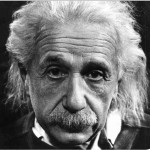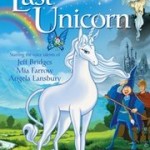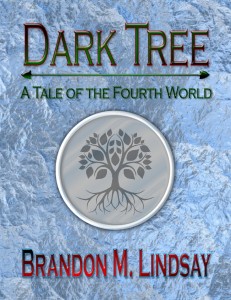No list of memorable characters in fantasy would be complete with Mat Cauthon. Robert Jordan’s resident troublemaker from The Wheel of Time series, Mat underwent an interesting journey, both within the pages of the books themselves and in this reader’s esteem as well.
[Warning: extensive spoilers for The Wheel of Time follow]
Mat begins the story as the town clown of Emond’s Field, Jordan’s Shire-like origin point for most of the series’ main characters. Everyone knows a Mat in real life. He’s the kid so known for troublemaking that everyone blames him as soon as something goes wrong. Most of the time, they aren’t wrong to do so. An archetypal “trickster” character, Matt’s eye for adventure and treasure along with his complete lack of common sense in the early books led him to quickly become my least favorite of the main heroes. Time after time his antics nearly get the others (and himself) killed. In the most singular example, he picks up a cursed dagger against explicit orders because it has a ruby in the pommel, and he pays dearly for this impetuous decision by nearly dying several times and losing large chunks of his memory. It’s safe to say that by the end of the second book, The Great Hunt, I was ready to wash my hands of Mat as a reader.
Then something funny happened. In the third book, The Dragon Reborn, Mat is presented as a viewpoint character for the first time. He also, quite against his own idea of better judgment, begins stepping up to responsibility when no one else is there to do so. Thus begins an epic quest within the larger story of the series, as Mat seeks to repair the damage done to him by the cursed dagger, repeatedly save his friends’ lives whether they admit to needing saving or not. Through a series of steps, each of which Mat himself would argue were perfectly necessary at the time, Mat becomes a proficient warrior, a master general, possessor of several powerful magical artifacts, husband to an empress and a true hero in his own right. But this is the stuff of any number of coming of age stories. Mat isn’t even the main character of The Wheel of Time. What makes him memorable isn’t just what I’ve listed above.
What makes it memorable is that Mat accomplishes all this while being absolutely hilarious about it all.
To be sure, Matt isn’t one of those characters who spouts off three witty lines per page for the entirety of the series. The humor of his character isn’t in what he says, but rather the irony the series continually thrusts upon him.
Contemptuous of nobility from the moment he first encounters them, of course he marries an empress. Disdainful of the notion of heroism and responsibility, of course he becomes a hero and a great battlefield commander. A gambler, drunkard (at least as far as The Wheel of Time’s PG-13 sensibilities allow) and a shameless flirt, Mat is utterly flummoxed when a young orphan boy his elite military squad adopts begins flirting with every woman he encounters. He repeatedly vows to determine who is teaching the boy such bad habits, never once realizing that, of course, Mat himself is.
Mat is a stellar example of how to make a character funny not by what they say, but but who they are. That’s actually a lot harder to do than it sounds.
Fans of Norse mythology will begin to recognize some of Mat’s exploits as they read, and the archetypal nature of his character begins to resonate with the gods (not the Marvel characters) Loki and Odin as the series goes on. The links to Loki, the trickster god, are obvious, but Wheel of Time fans who are unfamiliar with Mat’s connection to Odin may feel a little chill when they hear of Odin hanging himself from a tree and cutting out his own eye for the sake of wisdom.
From my least favorite character, Mat rocketed up the charts to become my favorite character in the series, and it wasn’t even close.
About the Author: Gregory D. Little
Gregory D. Little is the author of the Unwilling Souls, Mutagen
Deception, and the forthcoming Bell Begrudgingly Solves It series. As
a writer, you would think he could find a better way to sugarcoat the
following statement, but you’d be wrong. So, just to say it straight, he
really enjoys tricking people. As such, one of his greatest joys in life is
laughing maniacally whenever he senses a reader has reached That
Part in one of his books. Fantasy, sci-fi, horror, it doesn’t matter. They
all have That Part. You’ll know it when you get to it, promise. Or will
you? He lives in Virginia with his wife, and he is uncommonly fond of
spiders.
You can reach him at his website (www.gregorydlittle.com), his Twitter handle (@litgreg) or at his Author Page on Facebook.




